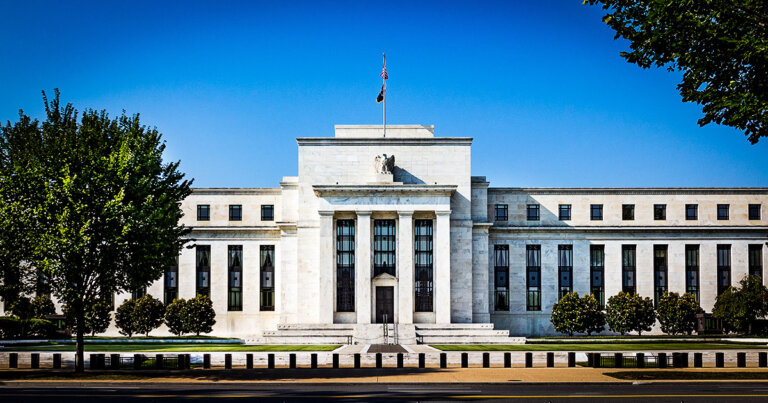 Federal Reserve will require state banks to get written ‘non-objection’ from central bank before engaging with stablecoins
Federal Reserve will require state banks to get written ‘non-objection’ from central bank before engaging with stablecoins Federal Reserve will require state banks to get written ‘non-objection’ from central bank before engaging with stablecoins
The Fed stated that its approval hinges on the ability of banks to show that they possess the necessary control systems to manage the risks tied to stablecoins.

Cover art/illustration via CryptoSlate. Image includes combined content which may include AI-generated content.
The U.S. Federal Reserve has issued new guidelines for state member banks regarding activities involving stablecoins or “dollar tokens.” According to these guidelines, banks must secure a written non-objection from the regulator before engaging in any such activities.
Under the new rules, national banks will have to submit an application detailing the services they intend to offer using stablecoins and how they will manage the risks associated with these activities, including those for testing purposes.
The Fed said that its approval would depend upon whether the national bank can demonstrate that they have adequate control frameworks in place to manage risks related to operations, liquidity, cybersecurity, illicit finance, and consumer compliance.
All activities related to stablecoins must comply with the relevant financial laws and regulations imposed on payment services, including the Bank Secrecy Act and requirements put in place by the Office of Foreign Asset Control.
Furthermore, banks that secure approval will be subject to period supervisory reviews and heightened monitoring of their stablecoin-related activities.
According to the Fed:
“The goal of the novel activities supervision program is to foster the benefits of financial innovation while recognizing and appropriately addressing risks to ensure the safety and soundness of the banking system.”
The new rules are based on Interpretive Letter 1174, wherein the Office of the Comptroller of the Currency determined in January that national banks should be allowed to use distributed ledger technology to “conduct payment activities in principal,” which can include issuing, holding, and transacting with stablecoins.
The OCC stipulated, however, that state member banks can only participate in these activities if they can demonstrate to their supervisor — the Fed — that they have appropriate controls in place to manage the associated risks and monitor suspicious activity.








































































































